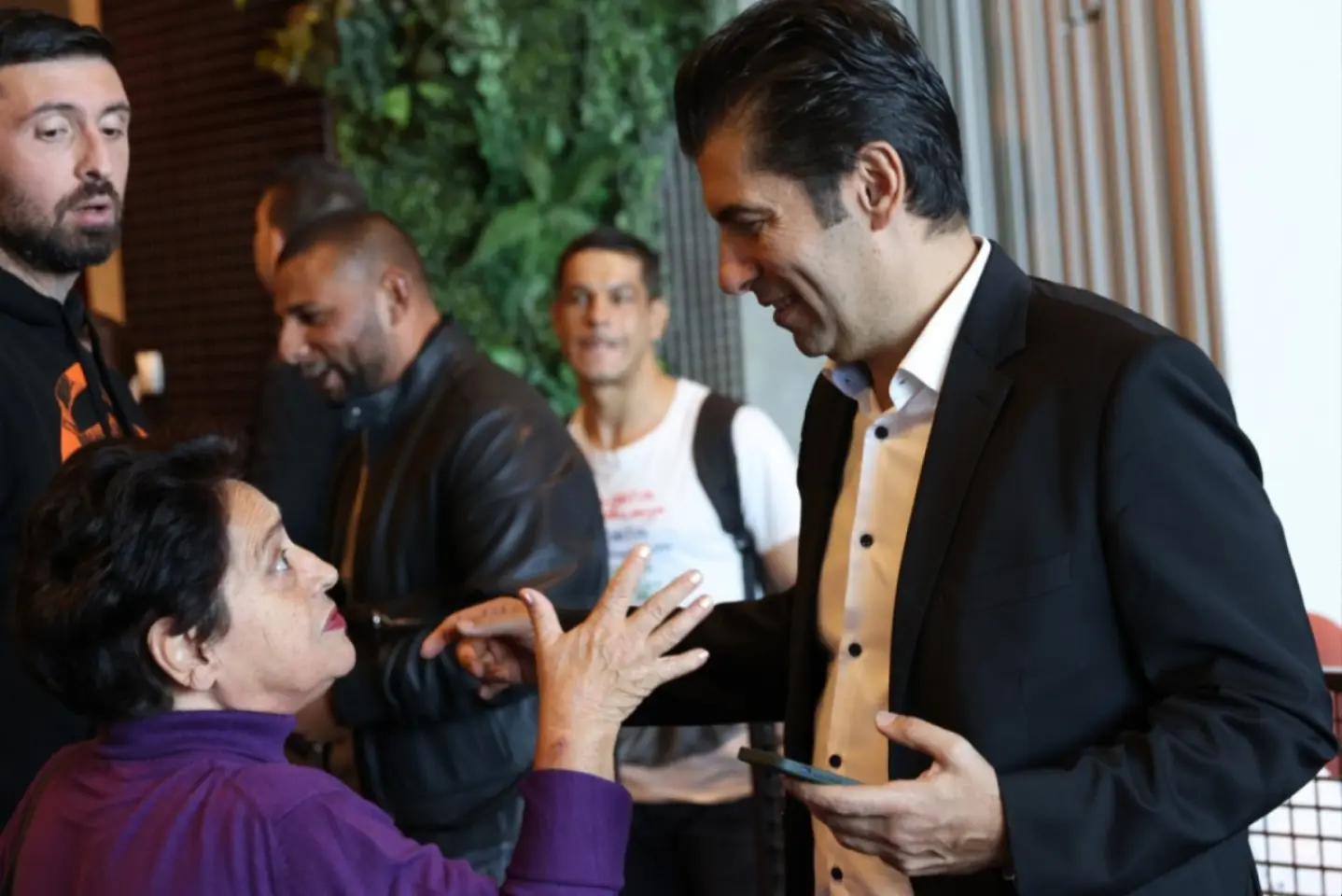
A corruption scandal is threatening to throw into irrelevance Bulgaria’s main pro-European reformist party. If that happens, the pro-Russians extremists would become the only alternative to the current ruling coalition.
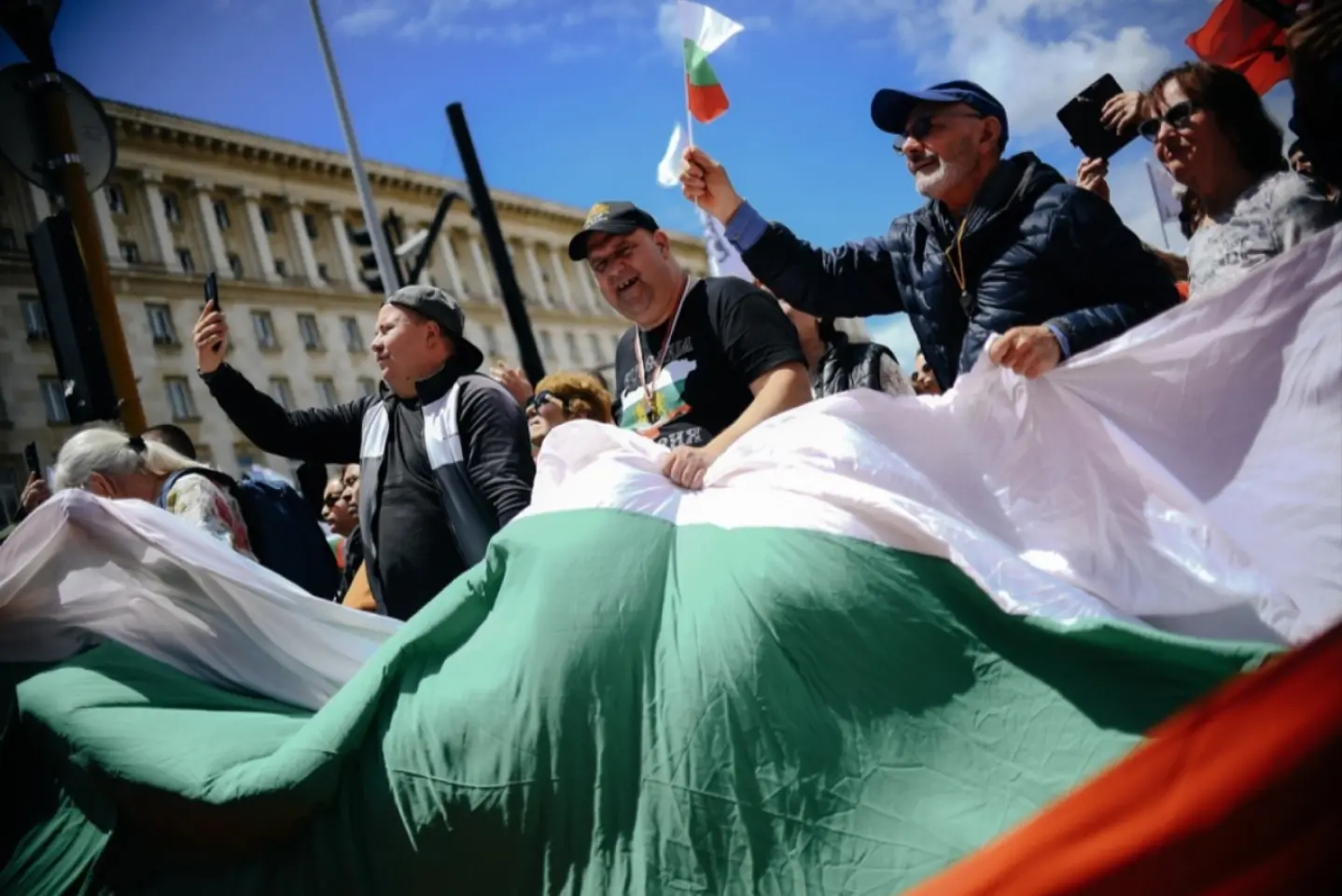
A vigorous campaign against the adoption of the Euro, the normalization of anti-LGBT discourse, and a campaign for religion in schools have recently raised tensions in Bulgaria, in a period that was also marked by the trial and conviction in the UK of six Bulgarians who spied for Russia and claimed to have connections at the top of the Bulgarian state.

Pro-rușii din Bulgaria au profitat de tăcerea pro-europenilor pentru a exploata în scop politic uciderea unui angajat bulgar al ONU în Fâșia Gaza.

The ruling GERB party, marred in the past by corruption allegations but with a pro-European discourse, is embracing some ideas of pro-Russian extremists and seems ready to adapt to Washington's new policy.

As various capitals in Eastern Europe are gripped by demonstrations, reformists in Bulgaria – a country with a tradition of protests – seem apathetic following years of political logjam and the return of the “system” parties.

A far-right protest in Sofia against a XIX century play directed by John Malkovich brought to the spotlight the disinformation and propaganda campaign targeting Bulgaria’s culture and education.

After Bulgaria’s parliament approved a controversial ban against “LGBTQ+ propaganda” in schools, both pro-Russia and populist pro-EU parties are eying a Russian-styled “foreign agents” law.

“Dreaming in Bulgarian” is an exhibition in Sofia by photographer Mihaela Aroyo, based on her years-long research of the community of Bassarabian Bulgarians in Moldova and Ukraine

Chiar sub privirea UE și după ani de potențiale reforme, democrația Bulgariei devine tot mai mult una de fațadă, dominată de partidul lui Boiko Borissov și de „sistem”.

Bulgaria’s pro-Russian far-right has been increasingly vocal and provocative, as it tries to take advantage of tensions within the pro-European, pro-Ukraine ruling coalition.

Communist-era monuments in Bulgaria were a point of fiery debates. Chaotic plans for their removal were not followed by a vision for the future.

2023 marked Bulgaria's exit from political crisis with the formation of a pro-Western government. On the other hand, he continued pro-Russian narratives continued to be promoted.

Bulgaria is sobering for the fact that the uphill battle to become part of the Schengen Area is far from over and even out of the country’s immediate control of the events.

Volodymyr Zelsnky visit to Sofia may be a boost for the pro-Western ruling coalition.
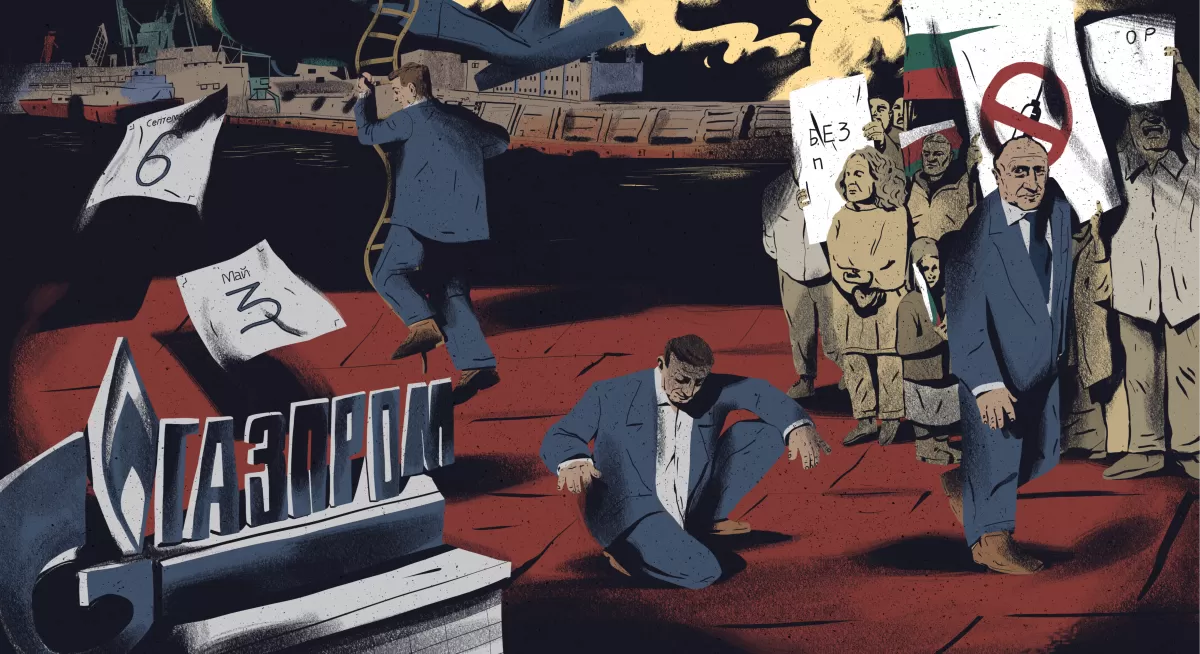
EU and NATO member Bulgaria, once Moscow’s closest satellite, has been moving away for years, albeit at a slow pace, from Russia’s pull. This process has been accelerated following Russia’s invasion of Ukraine. However, the Kremlin can still count on an array of friendly politicians, spies, and a disinformation and propaganda network to further its interests in Sofia.

The ruling coalition in Bulgaria has promised to improve the country’s relationship with North Macedonia ever since stepping in power. This has proved to be more difficult than expected as the topic is used to rally nationalist voters.

PM Kiril Petkov faces numerous challenges in his desire to send military aid to Ukraine including severing his relationship with the man who introduced him into politics, President Radev. On top of that, Russia cut Bulgaria’s gas supply, adding to the challenges faced by the government.

The invasion is having long-term effects on the relationship between Bulgaria and Russia. Pro-Ukraine demonstrations and numerous volunteer initiatives for the Ukrainian refugees have spread all over the country, and patience for the controversial Russian ambassador to Sofia is running out, as the government mulls plans to finally diversify its gas resources..

The tension between Russia and NATO put forward the question on how Bulgaria’s army can be reformed after decades of neglect and whether the country is the alliance’s “weak link”. PM Kiril Petkov looks like he’s on a solitary mission to prove this is not the case.

Untangling GERB and Boyko Borissov’s legacy might take a while: the new cabinet is keeping North Macedonia blocked from EU ascension talks, uncertainties surround a new gas link in Greece while the current Defense Minister downplayed the need of increased NATO presence in Bulgaria and Romania.
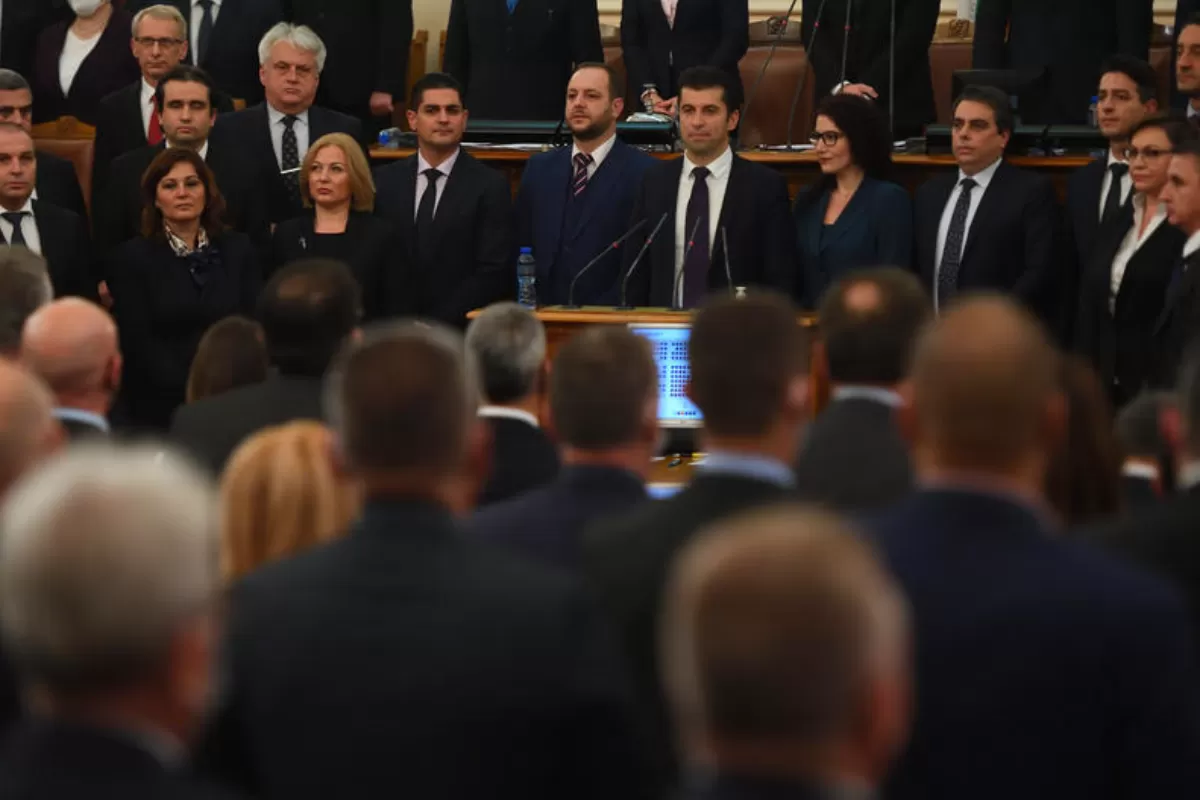
With a new coalition, promising hefty reforms and ending an almost year-long stalemate, Bulgaria seems to be heading towards a change. It is the promise of a new beginning, after a decade marked by GERB domination and suspicions of corruption. For the younger generation, it may as well be a new 1989 moment.

Bulgaria goes deeper into unpredictable territory following the November 14 joint elections. The general elections saw a new reformist party debuting on top against all odds, while in the Presidential run, Rumen Radev is set to be re-elected after mustering nearly 50 per cent of the vote in the first round.

The Pandora Papers did not cause a major surprise in Bulgaria, a country accustomed to corruption scandals. It remains to be seen what will their impact be. For now, one of those exposed in the leaks, controversial oligarch Delyan Peevski, instead of hiding returned from Dubai to Bulgaria and announced his come back to the political scene.

Two months before the Presidential elections, Radev is the only candidate, and with an approval rating soaring above 65%, he stands a good chance of being re-elected. Supported by parties opposing the local politics status-quo, Radev is trying to build a stronger persona and a long-term presence on the political scene

The desire to overthrow GERB and Boyko Borissov wasn’t enough: There is Such a Nation, the new party that won Bulgaria’s latest elections, made another U-turn on Tuesday by revoking its ministerial nominations amid rising controversies.

This Sunday Bulgaria is going through a new round of parliamentary elections, following the inconclusive ones from April which saw ruling party GERB lose votes and a Parliament dominated by opposition. The elections were called after no common ground was found between any of the parties in search of a coalition. The coming Parliament looks set to be as fragmented as the one that brought early elections. What will happen next is, thus, anyone’s guess. One thing seems sure though: long-serving former prime-minister Boyko Borissov will not return to power.

Sanctions and blacklisting by the US, a wave of resignations, revisions over the spending of the GERB cabinet in the last decade and mismanagement of financial aids: all of these are making headlines in the Bulgarian media as the country prepares for early elections on July 11 - a result of the inconclusive ones from the spring and the inability of any party to form a coalition.

Bulgaria braces for new parliamentary elections on July 11 which fuels the unpredictability in the country’s political life and raises several questions - will GERB return stronger or weaker, will popular singer and talk show host Slavi Trifonov continue his political rise after being a runner-up in the April elections, will the far-right see a resurgence after surprisingly low results? While politicians are trying to find some common ground, Bulgaria’s slow vaccination rollout, the still present COVID-19 pandemic, EU’s Green Deal and the previous government’s spending all remain unaddressed.

PM Boyko Borisov’s long-ruling and controversial party is winning the vote but at the same time is lacking a majority and there’s no obvious partner to form a coalition.

The highly publicised discovery of a Russian spy network in Sofia signalled a meddling in Bulgaria’s politics but also left a bitter taste - was it all government PR right before the general elections?

The government has failed to handle the COVID-19 pandemic on several levels and it seems like no lessons have been learned during the last year. All of this, right before the country votes for a new parliament.
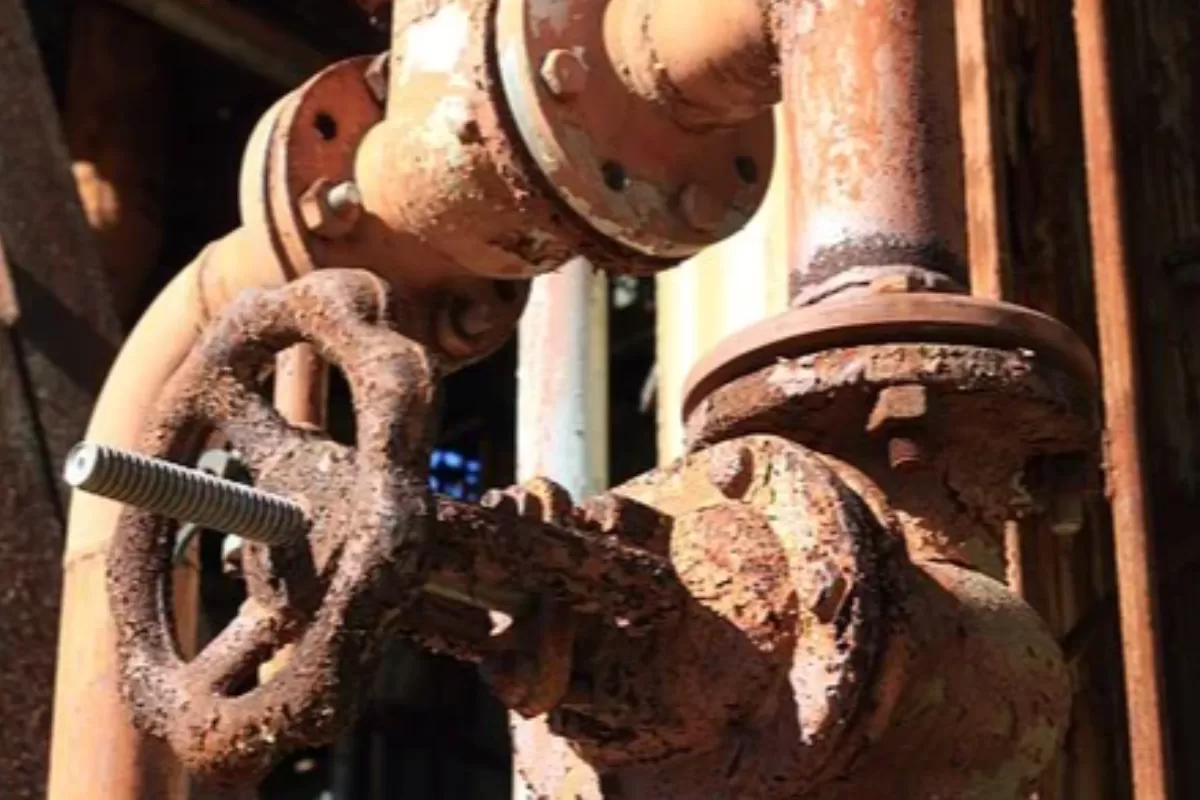
Bulgaria’s ecological problems are piling up just as EU funds aimed at addressing them continue to flow in. It’s a deepening crisis that could be interpreted as a “litmus test” on how the current political elite is (not) taking the seriousness of the country’s situation.